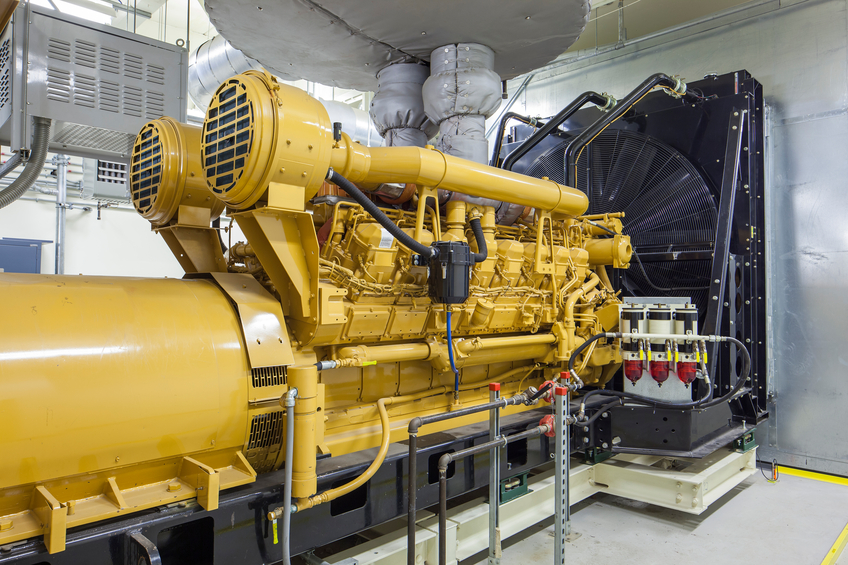Maryland Electrical and Ethics 16 PDH Discount Package 3
Improving Motor and Drive System Performance (E06-006)
Control of Hazardous Energy - Lockout/Tagout (E02-001)
Adequate Transformer Reserves (E02-032)
General Principles of Engineering Ethics (LE2-016)

This online engineering PDH course provides an overview of electrical theory and presents the basic electrical concepts used in the industry.
A basic understanding of electrical theory is important in any professional environment. Scientists, such as Faraday, Ohm, Lenz, and Kirchhoff have found that electricity seems to behave in a constant and predictable manner in a given condition. These scientists observed and described the predictable characteristics of electricity and electric current in the form of certain rules. These rules are often referred to as "laws".
Although we cannot see the electrons in motion, through experiments and observation we know how they behave. By learning the laws applying to the behavior of electricity and by understanding the methods of producing, controlling, and using it, electricity may be "learned" without ever actually seeing it.
This 4 PDH online course is applicable to electrical and mechanical engineers as well as other professionals who are interested in learning more about the theory and basics of electricity.
This PE continuing education course is intended to provide you with the following specific knowledge and skills:
- Familiarizing with the basic electrical terms and symbols
- Learning about the different types of electricity
- Learning about the atomic structure and electrical charge
- Knowing Ohm’s Law and the relationship between current, voltage and resistance
- Understanding the principles, characteristics and applications of DC and AC
- Familiarizing with basic electrical circuit requirements and characteristics
- Learning how to perform series and parallel circuit computations
- Gaining an overview of the construction of an electrical circuit
Upon successful completion of the quiz, print your Certificate of Completion instantly. (Note: if you are paying by check or money order, you will be able to print it after we receive your payment.) For your convenience, we will also email it to you. Please note that you can log in to your account at any time to access and print your Certificate of Completion.

This online PDH course presents the basics of motor and drive systems and briefly describes important terms, relationships, and system design considerations. It also provides a roadmap for finding opportunities to improve motor performance, as well as exploring the economics of motor systems.
Electric motors, taken together, make up the single largest end use of electricity in the United States. In the U.S. manufacturing sector, electric motors used for machine drives such as pumps, conveyors, compressors, fans, mixers, grinders, and other materials handling or processing equipment account for about 54% of electricity consumption.
To achieve cost-effective operation and maintenance of a motor and drive system, operators must pay attention to the entire system as well as to its individual components. Often, when investigating efficiency opportunities, operators are so focused on the immediate demands of this equipment that they overlook the bigger picture, which includes the ways in which system parameters affect all the equipment.
This 6 PDH online course is intended for electrical and mechanical engineers, contractors, manufacturers, building professionals and others interested in learning more about improving motor and drive system performance.
This PE continuing education course is intended to provide you with the following specific knowledge and skills:
- Detecting the indications of a poor system design
- Learning about the different types of electric motors
- Understanding motor operating characteristics
- Selecting motors and drives for their corresponding applications
- Understanding load duty cycles
- Familiarizing with common motor selection problems
- Understanding the framework for addressing seven efficiency opportunities
- Familiarizing with the steps that could be considered to improve motor performance
- Gaining a basic understanding of the economic considerations of motor systems
Upon successful completion of the quiz, print your Certificate of Completion instantly. (Note: if you are paying by check or money order, you will be able to print it after we receive your payment.) For your convenience, we will also email it to you. Please note that you can log in to your account at any time to access and print your Certificate of Completion.

This online engineering PDH course presents OSHA guidance on the control of hazardous energy for protecting workers from the release of hazardous energy.
Employees can be seriously or fatally injured if machinery they service or maintain unexpectedly energizes, starts up, or releases stored energy. If the potential exists for the release of hazardous stored energy or for the re-accumulation of stored energy to a hazardous level, the employer must ensure that the employees take steps to prevent injury that may result from such release.
OSHA recognizes the risk of employees being exposed to the release of hazardous stored energy. Therefore, OSHA developed the Control of Hazardous Energy Standard to protect employees from the unexpected energization or startup of machinery or equipment, or the release of hazardous energy during service or maintenance activities.
This 2 PDH online course is applicable to employers, building owners, engineers, managers, electricians, construction workers and any other personnel who are involved in servicing and maintaining electrical machinery or equipment.
This PE continuing education course is intended to provide you with the following specific knowledge and skills:
- Elements of The Energy-Control Procedure
- Responsibilities of Workers When Servicing or Maintaining Energized Machinery
- Applicability of Lock-Out Procedures
- Applicability of Tag-Out Procedures
- Lock-Out Versus Tag-Out Applications
- Employee Training
In this professional engineering CEU course, you need to review OSHA 3120, "Control of Hazardous Energy (Lockout/Tagout)".
Upon successful completion of the quiz, print your Certificate of Completion instantly. (Note: if you are paying by check or money order, you will be able to print it after we receive your payment.) For your convenience, we will also email it to you. Please note that you can log in to your account at any time to access and print your Certificate of Completion.

This online engineering PDH course discusses large power transformers, presents their different challenges, and provides various plans and recommendations on how to resolve them.
Large power transformers (LPT) serve as a key function to electricity grid infrastructure by managing voltage for efficient, long-distance power transmission and use by grid customers. Electric utilities and the U.S. Department of Energy face several challenges in ensuring that LPTs, both in use and in reserve, are available in adequate numbers to maintain a resilient electricity grid.
This 2 PDH online course is applicable to electrical engineers and other technical staff who are interested in gaining a better understanding of the challenges facing large power transformers.
This PE continuing education course is intended to provide you with the following specific knowledge and skills:
- Familiarizing with LPTs and their function in the electric grid system
- Exploring the challenges of LPT manufacturing
- Understanding the challenges to ensure adequate transformer reserves
- Learning the various plans and recommendations presented to maintain LPTs
Upon successful completion of the quiz, print your Certificate of Completion instantly. (Note: if you are paying by check or money order, you will be able to print it after we receive your payment.) For your convenience, we will also email it to you. Please note that you can log in to your account at any time to access and print your Certificate of Completion.

This online engineering PDH course presents the principles of engineering ethics that every engineer is expected to live by when practicing their profession.
Engineering ethics is (1) the study of moral issues and decisions confronting individuals and organizations involved in engineering and (2) the study of related questions about moral conduct, character, ideals and relationships of peoples and organizations involved in technological development (Martin and Schinzinger, Ethics in Engineering).
This course describes the fundamental legal concepts with which very engineer should be familiar. It also presents unique disciplinary case studies selected from across the nation, as well as hypothetical ethical challenges that demonstrate how difficult it can be to apply the code of ethics for engineers.
This 2 PDH online course is applicable to all professional engineers who are either required to fulfill 2 PDH in engineering ethics or are interested in broadening their understanding of what it means to practice and uphold the honor and integrity of their engineering profession while holding the utmost safety, health, and welfare of the public.
This PE continuing education course is intended to provide you with the following specific knowledge and skills:
- Understanding the common definition of ethics regarding engineering
- Learning about the important principles of the engineer’s professional responsibility
- Learning the do’s and don’ts through several ethical and disciplinary cases
- Understanding what it means to practise and uphold the honor and integrity of the engineering profession
Upon successful completion of the quiz, print your Certificate of Completion instantly. (Note: if you are paying by check or money order, you will be able to print it after we receive your payment.) For your convenience, we will also email it to you. Please note that you can log in to your account at any time to access and print your Certificate of Completion.